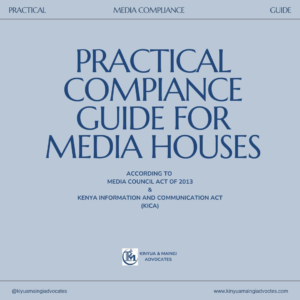Kenya’s commitment to the principles of equality and non-discrimination is woven in the entirety of its 2010 Constitution expressed predominantly in Article 27 as a substantial improvement on the right as provided in Article 82 of the previous Constitution (Fitgerald, 2010). The family unit has been depicted as the basic unit of the society as expressed under article 45 of the Kenyan Constitution (Shamalla, 2024). The Law of Succession Act, CAP 160, was created to amend, define and consolidate the law relating to intestate and testamentary succession and the administration of the estates of deceased persons. The Act prioritizes division and inheritance of property and seeks to protect and promote women’s right. It provides for the right of women to make wills and contest them. Pursuant to the Act, a wife is the primary dependent and is usually the most suitable to manage her late husband’s estate. The Act also prescribes that children inherit equally, with no preference based on gender (Kelin, 2019). Inheritance is the transfer or excluding from transfer, wealth of the deceased upon their death (Kelin, 2018). It is important to note that succession arises as a result of 3 considerations namely upon death of an individual, for sustenance purposes and for property acquisition (Owour, 2022).
Section 29 (c) of the Law of Succession Act insists that a dependent person in regard to succession is a wife, wives or former wives and the children of the deceased whether or not maintained by the deceased immediately prior to his death. It explains in depth that where the deceased is a woman, her husband needs to show proof of dependency prior the death of the deceased in order to be considered a beneficiary. A section that clearly shows gender discrimination particularly towards the man. This paper seeks to analyze the constitutionality of Section 29 (c) in light of the quality and non discrimination principles enshrined in Articles 27 and 45 (3) of the Constitution.
Gender Inconsistencies in the Law of Succession Act Cap 160
The gendered imbalance in Kenya’s succession framework was notably addressed in Mungai v Attorney General (Petition E416 of 2023) [2025] KEHC 8544 (KLR), where the High Court declared section 29(c) of the Law of Succession Act unconstitutional for violating the principles of equality and non-discrimination under Article 27 of the Constitution, as well as the guarantee of equal rights in marriage under Article 45(3). This provision required widowers to prove financial dependency on their deceased wives before qualifying as beneficiaries of intestate estates, a burden not imposed on widows. The Court held that this distinction violated the constitutional guarantees of equality and non-discrimination under Article 27, as well as the equal rights of spouses in marriage under Article 45(3). The dependency requirement further undermined the dignity of widowers by reinforcing outdated gender stereotypes, contrary to Article 28, finding no legitimate or proportionate justification under Article 24, the Court nullified the provision, underscoring the imperative for succession law to conform to constitutional standards of equality and fairness.
The case of Mungai vs the Attorney General (2025) sparked differences in the Kenyan Courtrooms. The issue faced by the High Court during the succession proceedings was ‘should a widower inherit his deceased wife without proof of dependency prior death?’ A question that is in contrast to widows, who are automatically recognized as dependents under Section 29(a). The problem, therefore, is not simply about who inherits, but under what conditions. Women are often excluded due to reliance on discriminatory customs, while men are burdened with evidentiary requirements that undermine the principle of marital equality. These contradictions render the 2010 Constitution and the Law of Succession Act (Cap 160) not only inequitable but also constitutionally defective, especially when assessed against the guarantees of equality (Article 27) and equal rights within marriage (Article 45(3)) under the 2010 Constitution. As such, the Law of Succession Act particularly Sections 29(c) and 33 must be reformed to align with Kenya’s constitutional commitment to equality, dignity, and non-discrimination.
The Contradiction of Section 29 (c) of the Law of Succession Act and Articles 27 (3) and 43 (3) of the Constitution of Kenya in relation to gender equality and social protection
Equality is governed by four principles; the first being formal equality where two people have equal rights in a particular respect and must be treated as so for example a man and woman in marriage, during marriage and after marriage have equal rights to the marriage. The second principle is proportionality equality, where treatment to people in a society is related to their due. For example, in a marriage, where property does not become matrimonial property the spouse who makes the contribution acquires a beneficial interest in the property equal to the contribution made. The third principle is moral equality which insists on equal dignity and respect among the human race. For example, in a marriage each person is owed human dignity. Lastly, the principle of presumption of equality which emphasizes that everyone should be treated equally by the law unless there is a very good reason not to. For example, if the Law of Succession Act, Section 29, gives widows automatic right to inherit but makes widowers prove their financial prior to wife’s demise, then this law must explain why the difference is fair and necessary. If it can’t then it goes against the principle of equality (Nabuire, 2017; Stephan, 2016. Law of Succession Act Cap 160; The 2010 Constitution of Kenya).
The 2010 Constitution lists equality as among the important National values and principles upon which governance should be based. The other National values are equity, human dignity, social justice, inclusiveness, non-discrimination and protection of the marginalized. Article 27 provides for equality and freedom from discrimination under the Bill of rights. Part 3 of Article prohibits discrimination of persons based on marital status and insists that parties to a marriage are entitled to equal rights at the time of marriage, during the marriage and at the dissolution of the marriage.
The anomalies in Section 29 of the Law of Succession Act (Cap 160) were squarely interrogated in Mungai v Attorney General (Petition E416 of 2023) [2025] KEHC 8544 (KLR). In the case, the High Court examined the unconstitutionality of Section 29(c), which required widowers to prove financial dependency on their deceased wives before being recognized as beneficiaries. The Court rightly identified that this provision entrenched a gendered imbalance by imposing a burden on widowers that was not similarly placed on widows, thereby contravening Article 27 of the Constitution on equality and freedom from discrimination, as well as Article 45(3) which affirms equality of spouses in marriage. This declaration through the Court attempted to align succession law with constitutional standards of equality and fairness.
However, the Act is historically rooted in a patriarchal legal structure that systematically marginalized women. Despite the transformative framework of the Constitution of Kenya, 2010, the Act continues to conflict with the equality principles enshrined in the Bill of Rights. One of its most glaring inconsistencies lies in Section 29(c), which requires widowers to prove financial dependency on their deceased wives in order to qualify as beneficiaries a requirement not imposed on widows. Similarly, Section 33 permits the application of customary law in intestate succession for certain “excluded” districts, thereby entrenching discriminatory practices that often privilege male heirs over female heirs. This effectively denies women the right to inherit, since many customary laws do not recognize daughters or wives as rightful heirs (Soiyan, 2017). For example, in the Estate of Lerionka ole Ntutu [2008] eKLR, the High Court observed that applying Sections 32 and 33 of the Succession Act meant applying Maasai customary law to the estate, a practice that effectively excluded daughters from inheritance. The Court noted that such exclusion was abhorrent to justice and morality, highlighting the constitutional and ethical tensions inherent in retaining discriminatory customary practices. With the enactment of the 2010 Constitution, however, such outcomes are clearly impermissible, as Article 27 guarantees equality and freedom from discrimination on the basis of sex, thereby rendering customary norms that disinherit women unconstitutional.,
Stand-Point
While the decision corrected the overt discrimination against widowers, it left unresolved the deeper anomaly within Section 29 as a whole, particularly its prioritization of women and children as dependents “first and foremost,” while treating male spouses as secondary beneficiaries whose rights arise only upon proof of dependency. This framing reflects outdated assumptions about gender roles, where men are presumed providers and women perpetual dependents, contrary to the constitutional vision of marital equality. The Court’s reasoning, though progressive, was limited in scope as it struck down the discriminatory requirement without fully interrogating the broader structural imbalance embedded in Section 29. A more holistic corrective perspective would require legislative reform to harmonize the Law of Succession Act with the Constitution and with related statutes such as Section 3(2) of the Marriage Act, 2014, the Children Act, and Section 4 of the Matrimonial Property Act, 2013 all of which recognize the equal rights and obligations of spouses. In practice, this would mean drafting a gender-neutral definition of “dependent” that accords equal standing to both widows and widowers, without presumption or proof of dependency based on gender. Such reform would not only address the constitutional inconsistency identified in Mungai v Attorney General but also modernize succession law to reflect Kenya’s evolving understanding of family relations and gender equity.
Conclusion
The Law of Succession Act (Cap 160) was enacted with the noble intention of creating a uniform legal framework for inheritance matters in Kenya. However, several of its provisions, notably Sections 29(c) and 33, remain deeply flawed in light of Kenya’s 2010 Constitution. These sections not only entrench gender-based discrimination but also conflict with the fundamental rights to equality, dignity, and non-discrimination guaranteed under Articles 27 and 45(3) of the Constitution. Section 33 permits the application of customary law in intestate succession, often to the detriment of women, while Section 29(c) imposes an unfair evidentiary burden on widowers that is not imposed on widows. These contradictions reflect a persistent imbalance in how the law treats spouses and heirs based on gender. The courts, as demonstrated in recent jurisprudence such as Mungai v Attorney General (2025), have begun to confront these inconsistencies. Yet, substantive legal reform remains necessary.
For Kenya to fully realize the promise of its transformative Constitution, the Law of Succession Act must be harmonized with the Bill of Rights. This calls for a comprehensive review and amendment of discriminatory provisions to ensure that all Kenyans regardless of gender, marital status, or custom can enjoy equal protection and benefit of the law in matters of succession.
References
Detho Jessica Nabuire (2017). https://suplus.strathmore.edu/server/api/core/bitstreams/ed97c2b8-1d24-407d-8467
d9e9983311a2/content
Fitzgerald. 2010.
https://www.equalrightstrust.org/ertdocumentbank/Jim%20Fitzgerald%20article.pdf
‘Gosepath Stefan: Equality’ Stanford Encyclopedia of Philosophy, 27 June 2007
https://plato.stanford.edu/entries/equality/ on 6 Dec 2016.
‘Gosepath Stefan: Equality’ Stanford Encyclopedia of Philosophy, 27 June 2007
https://plato.stanford.edu/entries/equality/ on 6 Dec 2016.
‘Gosepath Stefan: Equality’ Stanford Encyclopedia of Philosophy, 27 June 2007
https://plato.stanford.edu/entries/equality/ on 6 Dec 2016.
Kevin Owour 2022. https://papers.ssrn.com/sol3/papers.cfm?abstract_id=4097743
Kimiriny D. Soiyan. (2017). Kenya’s Laws of Succession and The Bill Of Rights Of The Kenya
Constitution (2010): A Study In Legal Reform”.
https://su-plus.strathmore.edu/server/api/core/bitstreams/a5dfd96e-9cd2-4332-911c
91bdd1db7eef/content
Shamallah. 2024. https://papers.ssrn.com/sol3/papers.cfm?abstract_id=3935192
The Constitution of Kenya. 2010. http://www.kenyalaw.org/kl/index.php?id=398
The Estate of Lenrionka ole Ntutu, 2008. https://kenyalaw.org/caselaw/cases/view/52304
The Law of Succession Act Cap 160.
https://kenyalaw.org/kl/fileadmin/pdfdownloads/Acts/LawofSuccessionAct_Cap160.pdf




